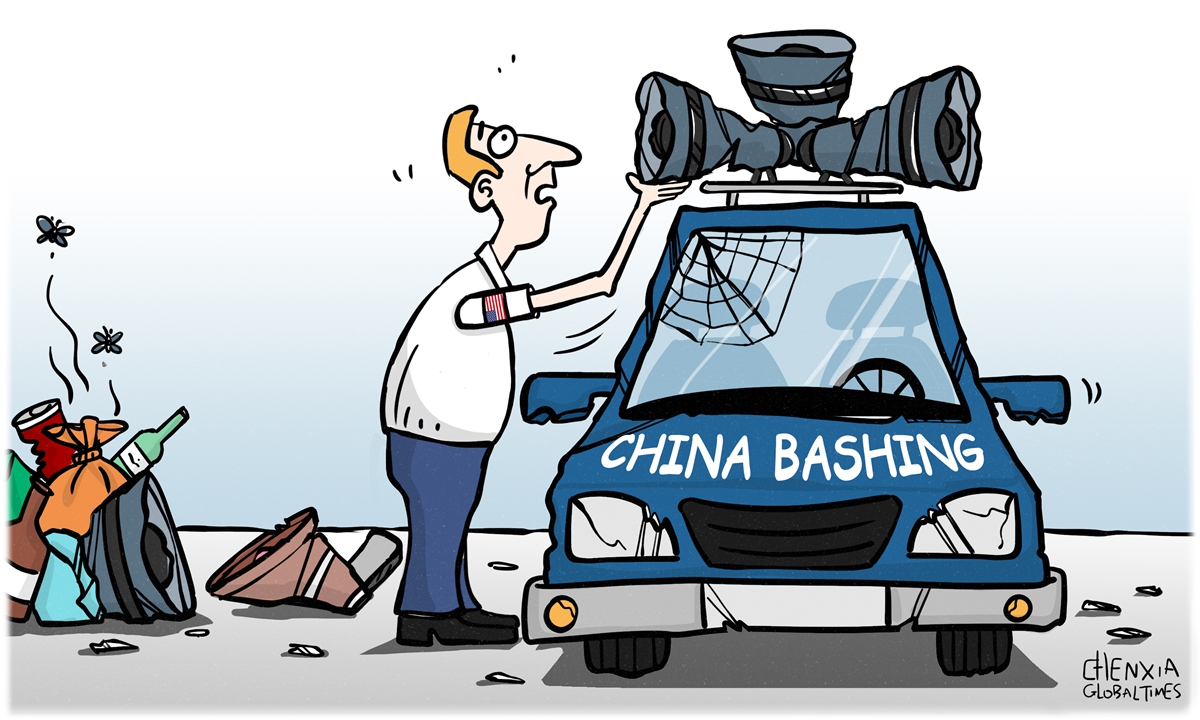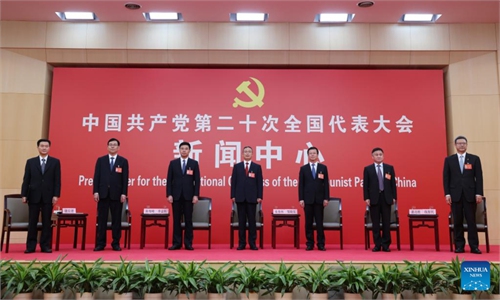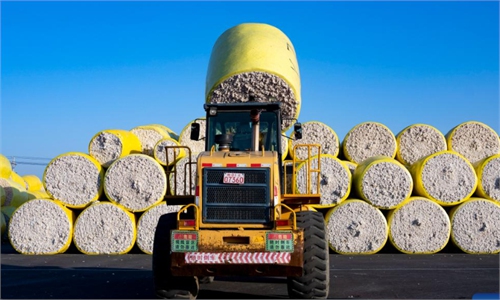Foreign Policy citing ISIS' views to slander China indicates US' public opinion warfare against China coming to a dead end

Illustration: Chen Xia/GT
Washington has called the jihadist Islamic State group, commonly known as ISIS, a global threat, and has mobilized a Global Coalition To Defeat ISIS. Its own military operations against ISIS are still going on this year. Yet in an attempt to attack China, a US media outlet used views of an article from a branch of the ISIS terrorist movement as a source to smear China's Xinjiang policy and the China-proposed Belt and Road Initiative (BRI).The US' public opinion warfare against China is becoming increasingly ineffective, and the hype on Xinjiang-related issues is not convincing at all.
Days ago, US magazine Foreign Policy published an article entitled "Afghan Militants Have China in Their Crosshairs," written by Haiyun Ma, an associate professor of history at Frostburg State University. Its argument comes from an article by the Islamic State-Khorasan - the Afghanistan-based branch of the Islamic State terrorist movement - in a September 2 article in its English-language Voice of Khorasan.
Although the influence of this branch is limited, some US anti-China forces, upon reading this article, seem to believe they see an opportunity to attack China and they simply can't wait to hype up its ideas.
According to Lü Xiang, an expert on international relations at the Chinese Academy of Social Sciences, the US' attempts to wage public opinion campaign against China has reached an unprecedented peak, even much stronger than that of the Cold War era. They have almost done everything they can to slander China, ranging from its political system to detailed policies, and the list goes on.
As long as there are any voices that may be aimed at China, even if it is from a small faction of terrorists, they will make use of them as sources to back their arguments against China. The US is now sparing no effort to smear China, and its despicable mentality is becoming increasingly clear.
The US has always groundlessly badmouthed China over the Xinjiang-related affairs. The US is defending those who insist on separatism and terrorism, and intends to use these extreme forces to mess up the Xinjiang region, and then mess up China, said Lü.
Xinjiang is situated in a pivotal geostrategic position of the BRI, which has long been seen as a threat by the US. Some US anti-China forces and media outlets may believe that smearing Xinjiang-related affairs will undermine the BRI. Washington has a very solid political strategy regarding Xinjiang-related affairs. It is pooling its resources to politicize and weaponize Xinjiang-related issues wherever possible.
No matter how successfully China governs the Xinjiang region, Western public opinion, particularly American public opinion and political circles, will continue to stigmatize it. Washington knows that provoking Xinjiang-related affairs has the potential to inflame ethnic tensions both within China and between China and its neighboring countries. This might destabilize China's internal and external environment and cause it to fall into disorder, which will slow down China's development.
In addition, many industries developed in Xinjiang tensely compete with those in the US, such as the photovoltaic and cotton sectors. Washington is trying to exploit Xinjiang-related affairs to destroy local industries, thus eliminating a rivalry. This is an extremely disgraceful practice.
The so-called abortions and reeducation camps, reported by the US and Western media, are fabricated. They distort economic, social, cultural, ethnic and other issues in Xinjiang by spreading disinformation. Under the US' overall competition strategy against China, Washington has resorted to every conceivable means to impair China's internal and external development environment, in a bid to achieve the goal of slowing down China's development pace.
Xinjiang-related affairs are entirely China's internal affairs, and any attempt to interfere in China's internal affairs is bound to fail. The majority of countries across the world see the Chinese government as having effectively managed Xinjiang-related affairs, and will not be misled by the US.
Moreover, ISIS' targeting of China illustrates the necessity for the fight against terrorism, separatism and extremism in the Xinjiang region. Evil forces such as the extremist ones had once gravely jeopardized Xinjiang's development and stability, resulting in the casualties of innocent civilians and the losses of property. The article by the branch of ISIS against China demonstrates that extremist forces that have threatened Xinjiang's security and stability still exist, and China needs to continue to implement its previous policies. Only by doing so can we effectively eliminate the ethnic separatist forces at home and the extremist terrorists in peripheral areas, as well as more effectively counter the US smear campaign.
The author is a reporter with the Global Times. opinion@globaltimes.com.cn


